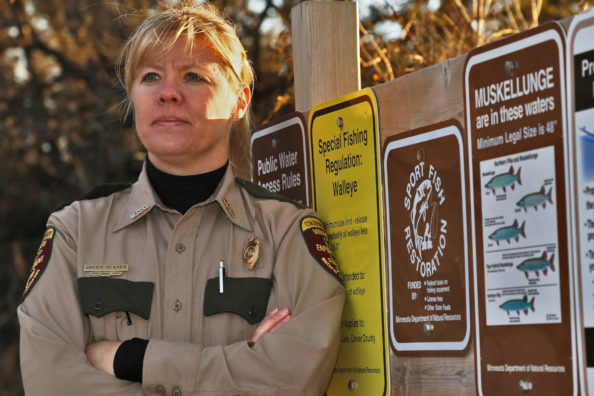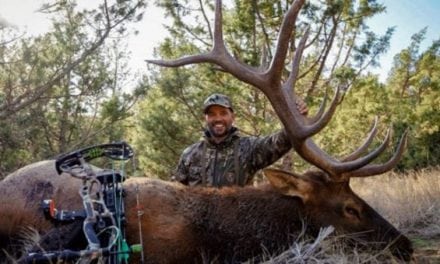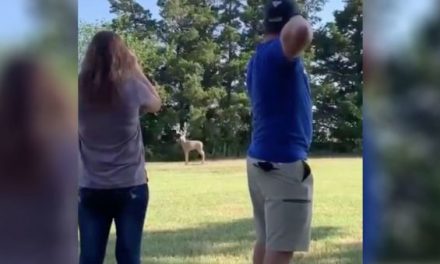
This is how much a typical game warden job pays.
One of the most interesting jobs in North America is that of the game wardens. These hard-working men and women are the ones who are primarily responsible for enforcing our game and fish laws. If you talk to one of these law enforcement officers, it’s quickly apparent that they never have a dull day on the job. One day they’re checking fishing licenses, and the next they may be helping bust a deer poaching ring.
For people who love to hunt and fish and want to give back to the outdoor recreation community, a job as a warden or conservation officer protecting our precious natural resources may be the ultimate dream.
After all, there are few job titles that allow you to work outside all the time, often independently from your boss or supervisor.
Many people wonder: How much does a game warden make? We will answer that and give you some other pertinent information about getting a job as a wildlife or conservation officer.
What is the Average Salary of a Game Warden?
This is going to vary greatly depending on the state where the officer works. One consistent factor is that years of experience play heavily into the equation, with more experienced wardens earning more. GameWardenEdu.org notes that education level, overtime pay, and geographic region may play a role too. This resource draws its data from the Bureau of Labor Statistics, which lists the median salary for a wildlife officer at $57,710 annually.
It should be noted that a rookie game warden salary is often significantly lower than that. Pay increases as an officer rises in experience and rank, and each state has their own definitions and requirements for such a rise. For instance, in my home state of Michigan, a recruit is only going to make $34,694 to $45,410 annually working as what Michigan defines as a “Conservation Officer 10.”
To rise from level 10 to 11, you need to have at least one year of experience, and to go from 11 to 12, you’ll need to put in at least two years. An officer at levels 11-13 earns between $44,574 and $79,040 a year. Officers need at least four years of experience to move to level 13, which pays $55,432 to $94,515. From there, Michigan conservation officers at the highest levels earn between $55,432 to $101,920.
Texas is a state rich in hunting and fishing traditions, and there’s a ton of work to be done in policing game laws within its borders. A game warden cadet in Texas starts at $40,344. However, stick with it to the rank of game warden II (four years of experience), and you’ll be making $64,904. Pay increases come in four-year intervals for the Lone Star State, with the rank of game warden VI (20 years of experience) topping out at $77,844. Additional stipends are available to game wardens in Texas, including extra money earned if you’re fluent in Spanish.
North Carolina, for another example, pays their officers $36,160 annually on the low end and $48,780 on the high end. In South Dakota, conservation officer salaries start off between $33,196 and $54,163 as a trainee officer. Once you earn the title of conservation officer, you’re looking at $38,000 to $65,873 annually. West Virginia starts their officers at approximately $33,994 a year.
Florida pays their game wardens just over $36,000 a year, but you can earn more if you are working Lee, Collier, Broward, Dade, Palm Beach, or Monroe Counties. Florida also awards additional monthly stipends for certain career development courses or academic achievements.
Some states offer more generous pay for beginning trainees. Illinois, for instance, starts paying their game wardens between $48,168 and $50,064. Washington state conservation officers start at $57,948. Cadets in California can earn between $42,840 and $57,768.
As you can see, pay can vary greatly depending on the state you wish to work. As is usually the case, many officers don’t get into this career strictly for the pay. They often do it out of a love of wildlife conservation, and a desire to protect the natural resources from being abused.
The good news is the current job outlook for a game warden is good. Many states are looking to hire more officers, and will likely continue to do so in the coming years. States that have large swaths of public lands, or those that have a lot of water, are in need of new recruits. It’s not hard to guess why, because general interest in camping, fishing, and boating continues to increase after its acceleration during the Covid-19 pandemic.
Now is a good time to find a gig as a game warden.
Game Warden Education Requirements
The minimum requirements for being eligible for a job as a warden vary by state. Some are going to require more of their rookies than others. Michigan, Maine, and Iowa are three states that list a high school diploma as a minimum requirement, but most agencies recommend, if not require, a college degree for applicants. Some states, like Vermont, ask applicants to have 20 college credit hours plus a high school diploma or GED.
If you are a high school student who is considering this as a career, keep in mind that almost every state requires applicants to be at least 21 years old.
It is worth noting that many states like Texas, Kansas, Montana, New York, and more require a four-year bachelor’s degree. And they may require a certain number of credit hours to be in fields related to the work.
Most states do not specify the types of college courses you need to take, but it’s going to make you a more attractive candidate if you are studying things like wildlife management or criminal justice. Keep in mind that a game warden job is, in many ways, a police officer job. There’s more of an emphasis on wildlife laws, but game wardens write citations. They’re often dealing with people breaking the rules or in need of rescue. Things can get dangerous.
As such, any training in law enforcement is valuable. Some states value candidates who have worked in a traditional police department, or to those who were in the military.
Do your homework on your chosen state and their education requirements ahead of time for the best odds of getting hired.
Other Game Warden Requirements
A clean record is almost always a requirement for a game warden job. Minor offenses like speeding tickets might not hurt you, but a misdemeanor or felony is often an automatic disqualifier. Don’t even think of trying if you are a convicted wildlife poacher.
Aside from that, the recruitment process for a warden job is often quite extensive. Most states are going to require you to pass a civil service test and multiple types of law enforcement tests before they’ll even let you apply for the job.
Every state is going to have their own extensive training program that is a requirement for all potential recruits. These can last anywhere from ten to 30 weeks. Physical fitness is often a key part of the job, but each state or specific role within the conservation officer ranks has their own set of physical requirements.
In most cases, there is a type of probationary or training period in which candidates shadow an experienced officer for on-the-job training. This part is paid, but it can be long, between 30 weeks to a year depending on the state.
As we mentioned earlier, the job market should be good for game warden candidates in the future. But it’s a popular line of work for outdoorsmen and women. Agencies can afford to be picky about who they choose for the job. Those who do the extra work to make themselves stand out are going to have a better chance of being hired.
One last thing to keep in mind for potential game wardens is that it is not an easy job. It often requires long hours and large, off-grid places to patrol. When peak hunting and fishing season rolls around, well, that’s going to be the busiest time of year.
Most wardens enjoy outdoor recreation, but many I’ve had contact with will openly admit they don’t get to participate as often as they would like.
Considering that, and all the hard work they do protecting our precious natural resources, we have a lot of respect and thanks for their services to the community.
For more outdoor content from Travis Smola, be sure to follow him on Twitter and check out his Geocaching and Outdoors with Travis YouTube channels.
NEXT: THE AXIS DEER AND HOW THEY’RE IMPACTING PARTS OF THE UNITED STATES
WATCH
The post Game Warden Salary: Typical Starting Pay for a Career in Wildlife Law Enforcement appeared first on Wide Open Spaces.















